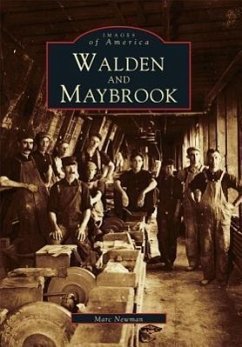The villages of Walden and Maybrook are located within the town of Montgomery, halfway between New York City and Albany. During part of the nineteenth and twentieth centuries, Walden was considered the Knife Capital of the United States; three companies specialized in producing pocketknives, penknives, and switchblades. At the same time, Maybrook was known as the Gateway to the East; it had the largest railroad-switching terminal connecting rail service from the interior of the country to the New England states. The two villages depended upon each other: Walden manufactured the goods, and Maybrook shipped them to market. With carefully selected photographs and detailed text, Walden and Maybrook traces the history of the two villages from the Colonial era to the mid-nineteenth century. The book contains some two hundred images, many of which have never before been published. Highlighted are the hardworking individuals who helped the villages prosper-the knife makers, polishers, grinders, and hefters, the prominent businesspeople of Chesnin & Leis Clothing and Brook May coats, and the railroad personnel who worked at the roundhouse, the engine house, and the coaling trestle.
Bitte wählen Sie Ihr Anliegen aus.
Rechnungen
Retourenschein anfordern
Bestellstatus
Storno

